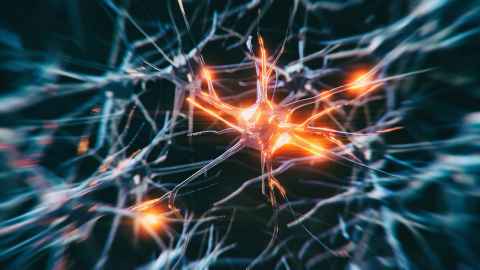Mental health disorders warning sign for dementia
17 February 2022
Poor mental health in earlier life is a strong indicator of risk for later dementia, according to the results of a long-term study.

A collaboration between the University of Auckland, University of Michigan and Duke University, the study looked at 1,711,386 New Zealanders born between 1928 and 1967 and followed them for 30 years (from 1988 to 2018); those studied were 21-60 at the start and 51-90 by the end.
It found that those who had been hospitalised for mental health issues had three and a half times the risk of later developing dementia than those who hadn’t.
Results held for men and women, for both early and late onset dementia, for both Alzheimer’s and non-Alzheimer’s dementia, and across all mental health disorder types, even after accounting for pre-existing physical illness and socio-economic deprivation.
The fact that mental health predicts dementia more strongly than physical health, and held true for all types of dementia was unexpected, says University of Auckland social scientist Associate Professor Barry Milne, a co-author of the study.
It found that those who had been hospitalised for mental health issues had three and a half times the risk of later developing dementia than those who hadn’t.
“This suggests that if we can focus our resources on mental disorders when they peak in adolescence and young adulthood, we may also prevent or delay later dementia.”
Dementia describes a group of brain symptoms affecting memory, thinking and social abilities severely enough to interfere with daily life and affects around 70,000 New Zealanders, with that number predicted to more than double by 2050.
And while the reason for the connection between early mental health issues and later dementia hasn’t been definitively established, it could be that alcohol use, often associated with mental health disorders, may also lead to dementia, or that the medication for mental disorders, such as antipsychotics, could also raise the risk.
It may also be that life-long brain vulnerability manifests itself as mental health problems earlier in life and dementia later in life, with shared genetics causing both, says Dr Milne.

But although the risk for those who’ve experienced mental health problems is significantly greater, most people with mental health issues won’t develop dementia, he says.
“Mental health problems are not ‘life sentences’ that always result in dementia.”
Previous studies investigating the link between mental health disorders and dementia have tended to assess mental health from mid-life only, too far past the young-adult peak prevalence, and haven’t often explored a range of mental health conditions.
Mental health conditions covered in this study, which affected four percent of those studied, included self-harm, substance use disorders, psychotic disorders, mood and neurotic disorders.
Analyses were conducted using data in the Integrated Data Infrastructure (IDI), a de-identified or anonymous database of New Zealander’s interactions with government services.
The lead author is Professor Leah Richmond-Rakerd from the University of Michigan and the study is published in JAMA-Psychiatry ( Journal of the American Medical Association-Psychiatry).
Media contact
Julianne Evans | Media adviser
M: 027 562 5868
E: julianne.evans@auckland.ac.nz